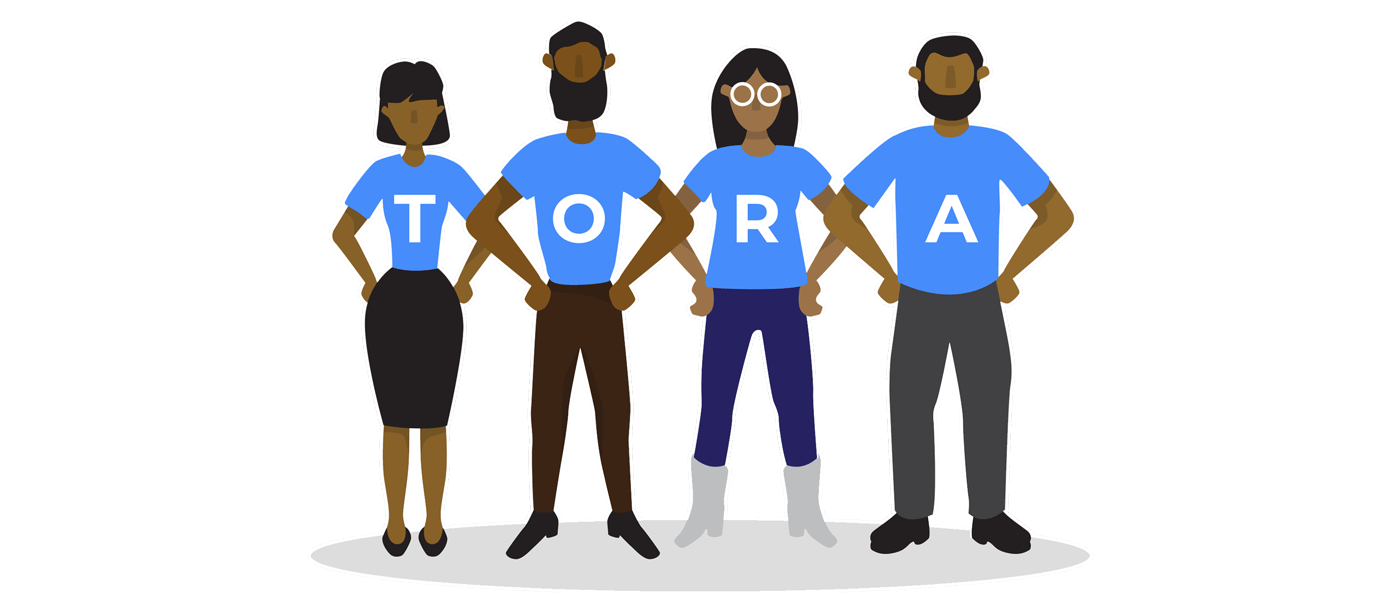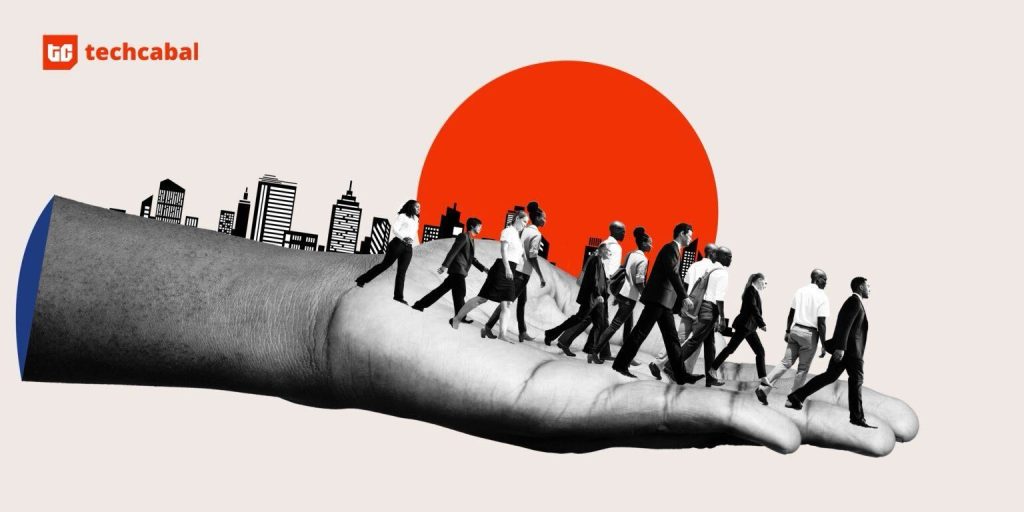There are many things to like about the explosion of bike-hailing start-ups in Nigeria. Rides can be ordered from your phone, cashless payment is supported, and bikes and other equipment are great. But the most important thing about bike-hailing is that safety is all but guaranteed.
Unlike regular okada riders, bike-hailing startups seem to take multiple precautions to ensure their passengers don’t make up the numbers of a gory statistic.

Okadas in Lagos have often been accused of recklessness leading to accidents. According to Dr Taiwo Salaam, permanent secretary at the Lagos State Ministry of Transportation, okadas have killed over 11,000 people in the state since 2011.
To ensure safety, ORide, a bike-hailing startup in Nigeria, turned to Tora, a driver training and deployment company.
Tora is a self-described ‘human resources technology’ startup. Based in Lagos, the company recruits, trains and verifies drivers for individuals and businesses that require their services. Roseline Ekenimoh (Chief Executive Officer), Ized Uanikhehi (Chief Marketing Officer) and Charles Avackaa (Chief Operating Officer) founded the company in March.
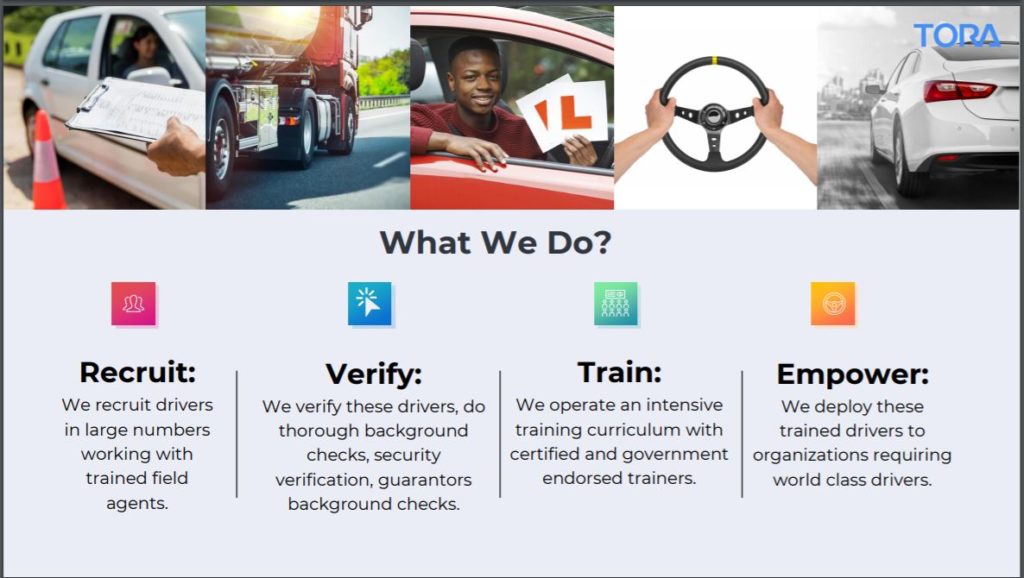
The company says it conducts a rigorous verification check on drivers including verifying their address and other relevant details they provide.
Tora started out with a short-term goal to train and deploy between 1000 and 2000 drivers and riders. It emerged to do two things: provide jobs for Nigeria’s unemployed youths, and to tap into the country’s transport business. But after establishing its business model, the company is thinking long term.
Many of Tora’s drivers have little to no driving experience prior to joining the training. Tora doesn’t collect fees from prospective drivers before they join the programme, Uanikhehi told TechCabal.
“Drivers do not pay to be trained, to be honest, we even lend them fare to come for training,” she said. Instead, Tora absorbs the cost of driver training and recoups its investment when the drivers are deployed to companies through an agreement with the requesting party.
“Like an Andela for drivers,” Uanikhehi said jokingly.
The company houses potential drivers and trains them on proper road practices, safety issues and customer engagement skills. Drivers are also taught basic comprehension skills, proper hygiene, and how to navigate using Google Maps. Psychometric testing is also included to evaluate driver intelligence, skills and personality. The training period varies from one week to 4 weeks depending on the driver’s prior experience level.
Tora opened its first campus in the Mushin area of Lagos, which had 40 rooms to house trainees for the duration of the training. It has since opened campuses in more locations across Lagos and Ibadan in Oyo State.
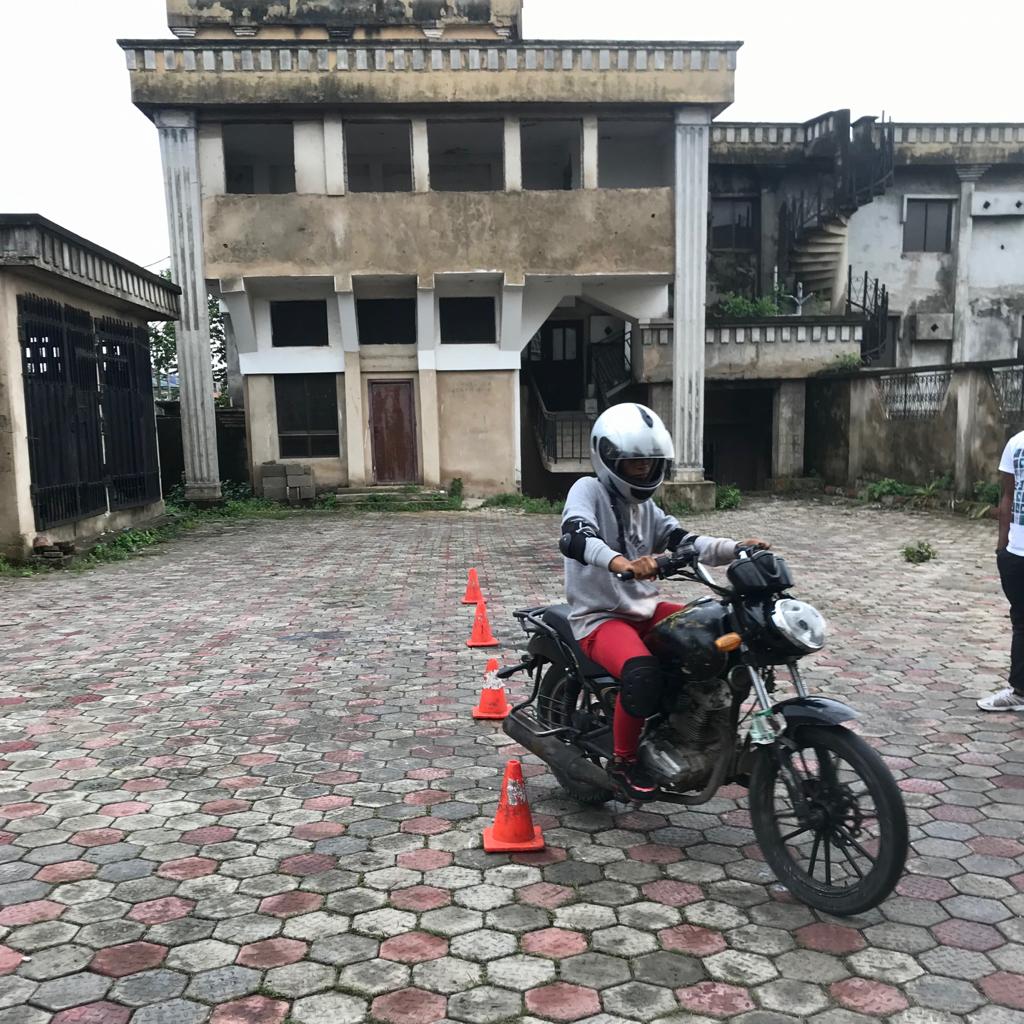
The training runs for one to four weeks, depending on the driver’s level of expertise.
Richard Kolawole, a driver who underwent training with Tora, told TechCabal he was surprised he didn’t have to pay to join the program.
“I asked the same question: how do they make their money?” he said. But “they said it’s not for us to negotiate with our clients; they do the negotiation for us,” he said. “So I guess that’s how they get their money back,” Kolawole added.
However, drivers are not privy to the financial terms of the negotiations. Richard disclosed that Tora only informs them about their base salary at the company drivers are deployed to.
Although the company has only been in business for five months, it has already signed deals with over 40 clients and has so far helped create jobs for over 200 drivers and bike riders. It also recently secured seed funding from Nigerian investor, Idris Ayodeji Bello.
As a human resource and outsourcing company, Tora is competing in a crowded space with multiple companies are already serving different clients with drivers as part of their broad recruitment services. However, Tora is counting on its niche offering and is relying on two key things for growth: the bike hailing market and driver management.
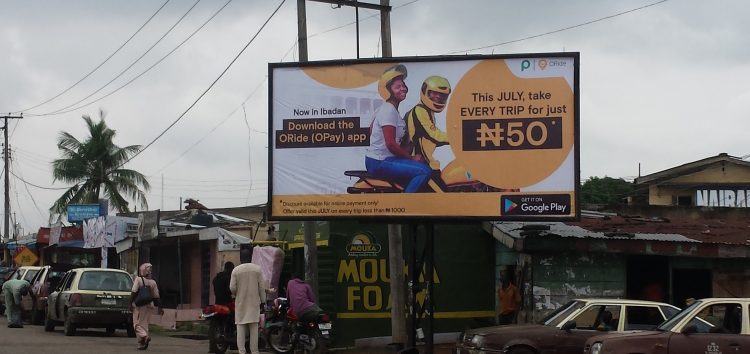
Uanikhehi explained that the bike hailing market is a “huge market”. She said that when the company was created it wanted to tap into the “ride-hailing wars”, referring to the emergence of major players like Gokada, Max and ORide.
“This huge market was opening up and we decided to take advantage,” she added.
ORide, the bike-hailing service from Opera, is Tora’s biggest client. ORide only launched in May but has grown rapidly by offering discounts to customers and expanding beyond Lagos.
Tora has played some part in ORide’s growth. Although Uanikhehi did not reveal exact figures, she disclosed that ORide made a “large” order to recruit, train, verify and deploy riders to them. The ORide order prompted Tora to expand and open a new campus in Ibadan. By early July, the bike-hailing service announced its launch in Ibadan.
The company is also developing an online driver management platform that will allow clients to track drivers in real-time, monitor their driving including their speed, give them instructions, and get weekly reports on drivers.
Tora’s driver management platform will be a monthly subscription service that can be used by clients with different needs. Uanikhehi explained that car owners could use the platform to manage their fleet of Uber or Bolt drivers. She also explained that the platform could be used by logistics companies to monitor deliveries and their drivers.
But it’s not been smooth sailing for Tora. According to Uanikhehi, driver training is tough, especially for experienced drivers who have to be retrained.
“We find retraining is a lot more time and effort than training,” she explained. Tora has also had some difficulty signing on new clients due to its reliance on inexperienced drivers. However, the company hopes its rigorous verification and training processes would help to address this concern.
Being a company founded by two women, Tora says it wants to bring diversity to its pool of drivers but it constantly faces the challenge of getting more women to join as drivers.
“When a call for drivers is made, we typically get 99% male response,” Uanikhehi said.
Tora says it wants to address this disparity but has yet to announce any efforts in this direction.









